|
|
|
Книги издательства «Laurence King Publishing»
|
With a freshness and breadth of approach that sets the art in its context, this book explores why works were created and who commissioned the palaces, cathedrals, paintings, and sculptures. It covers Rome and Florence, Venice and the Veneto, Assisi, Siena, Milan, Pavia, Genoa, Padua, Mantua, Verona, Ferrara, Urbino, and Naples. Chapters are grouped into four chronological parts, allowing for a sustained examination of individual cities in different periods. Contemporary Scene boxes provide fascinating glimpses of daily life and Contemporary Voice boxes quote from painters and writers of the time. Innovative and scholarly, yet accessible and beautifully presented, this book is a definitive work on the Italian Renaissance. This revised edition contains c.200 new pictures and nearly all colour images. The chapter structure has also been improved in the final section and the new format makes the text more user-friendly. |
|
One of the most ubiquitous pieces of printed matter, the business card presents a unique design conundrum. Constrained by budgetary and size restrictions, how do you present a persons or a business's identity and contact details, all in a very small space... and still have some fun? In an age dominated by digital media, the first two books in this series revealed the unique potential of the business card as an opportunity for creative greetings, firmly stamped with the user's personality. Business Cards 3 features over 200 innovative interpretations of the humble business card fromaround the world. Collected from designers and clients across the creative industries, highlighting materials, formats, and production methods that push the boundaries of this genre, the result is a book full of inspiring surprises. |
|
Miniatures make us relive the world from the perspective of our childhood, a time when the world was populated by toys and figurines. Miniaturized worlds seethe with narrative potential, intricate story lines, suspense. Microworlds is a fascinating collection of images for anyone intrigued by these miniature, imagined worlds. |
|
Pictures and Words collects together the most outstanding contemporary examples of pictorial storytelling. Celebrating illustration that stands on its own to tell a story rather than simply accompanying or adorning another medium, the book includes extracts from graphic novels, comic strips and books, as well as single-panel cartoons and drawings. Words are present in the form of character dialogue or narration, or sometimes a story emerges from a series of illustrated panels that contain no text at all. With or without words, this is a highly expressive medium, dealing with a vast range of subjects from political issues to the most complex of human emotions. Comics and graphic novels are currently enjoying huge popularity in mainstream culture. This timely book brings together work by 30 key artists from around the world, including Paul Davis, Benoit Jacques and Andrzej Klimowski. |
|
Now in its second edition, this wide-ranging, seminal text offers an accessible account of the history of graphic design from the nineteenth century to the present day. Organized chronologically, the book makes an important critical contribution to the subject by presenting graphic design and typography as deeply embedded in the fabric of society in every era. This distinctive approach enables Stephen Eskilson to discuss the evolution of graphic design in light of prevailing political, social, military and economic conditions, as well as nationalism and gender. After surveying typography from Gutenburg to Bodoni, he traces the impact of the Industrial Revolution and the influence of Art Nouveau and the Arts and Craft movements on the graphic arts. In the richly contextualised chapters that follow, he chronicles the history of the early twentieth-century modernist design styles, the wartime politicization of American and Soviet regional styles, the Bauhaus, the rise of the International Style in the 1950s1960s, and the post-modern movement of the 1970s1980s right through to the challenges facing the worlds designers today. This second edition has been carefully reviewed and updated to best reflect contemporary scholarship. In addition to 75 new colour images, there is a revised final chapter that includes an up-to-date survey of the wealth of aesthetic, conceptual and technical developments in graphic design over the last few years. |
|
There are books on the nuts and bolts of web design and there are books about website aesthetics, showcasing examples of good design. How to Design Websites contains the essentials of both, addressing the skillsets required to produce websites that are functional and elegant — but from a graphic designer's perspective. It demonstrates that you can design a working website in minutes without the need for expensive programs. Chapters include Code, Layout, Text and Typography, and Images and Colour Schemes. Useful 'tips and tricks' panels are included, as well as step-by-step projects — such as how to produce a portfolio site — that will be of interest to design students and to graduates of all disciplines. Inspirational 'Trailblazer' case studies showcase the best of contemporary designers and their work. Blogs, Facebook, Flickr and HTML5, and new ways of using the web, such as mobile phones and netbooks, are also discussed. |
|
This book examines about 30 bathroom designs from around the world, each one designed by a notable architect and created especially for a specific residence. For each bathroom there is an image of the whole house (placing it in context and providing a flavour of the general design style), images of the bathroom, and a floor plan showing its relation to the other spaces. The pages that follow are entirely devoted to detailed drawings showing the arrangement and construction of the bathroom, in particular sections, elevations, and construction details of all the fitted units and joinery. These drawings are all made to a consistent style and to a set number of scales for easy comparison. Dimensions are also included with the drawings as well as details of fitted units (baths, showers, basins etc.). The credits for the projects include contact details of suppliers so that the exact materials and fixtures can be sourced. The projects are arranged into chapters by type of dominant material: glass, steel, stone, etc. The book will be invaluable for all practicing architects as well as those considering commissioning a high-quality bathroom for their own house. |
|
Updated with expanded coverage of twenty-first century architecture, this new edition uniquely comprises a detailed survey of Western architecture as well as architecture from the Middle East, Africa, Central and South America, India, Russia, China and Japan. Significant revision also includes photographs and textual discussion of around 50 new buildings. Written in a clear and engaging style, the text encourages readers to examine the pragmatic, innovative and aesthetic attributes of buildings. Artistic, economic, environmental, political, social and technological contexts are discussed. The global reach of the text is matched by a rich assortment of photographs from around the world and a greater array of detailed line drawings than in any architectural survey. The authors have created a formidable body of work that ranges over much of the worlds architectural heritage and testifies to some of the greatest achievements of the human spirit. |
|
Printed brochures, catalogues and 'multi-page' documents form the bedrock of many graphic designers' daily practice. Most printed literature is disposable: today's hot communication document is tomorrow's landfill. But the best brochures, catalogues and documents have a permanence and organic completeness that has become important in the ephemeral, and increasingly electronic, world of instant communications. This book features the best of contemporary printed literature. It offers a critical survey of current graphic design, showing work by leading practitioners from the USA, Europe and Japan. Arranged in a designer-by-designer format and accompanied by interviews with some of the designers responsible for the featured work, this book offers a complete and informative picture of this popular subject. |
|
When planning a new office, designers and their clients are faced with many challenges and questions. They have to think about practical issues such as spatial needs, proximity relations, IT infrastructure and furniture, but also more strategic issues such as occupancy costs, effectiveness of the working environment, and environmental impact. One of the most fundamental questions during the briefing stage concerns the office concept: what kind of office design best suits the working processes and culture of the organisation? Should all employees have their own workstation or are they going to share desks? Would enclosed offices or a more open working environment be better? Perhaps a solution that holds the middle is best? How many and what kind of meeting spaces do we need? Planning Office Spaces is a clear, accessible book written to help solve these problems, looking at each of these issues in turn and showing the alternatives on offer and what the advantages and disadvantages are. It is ideally suited for both office designers and their clients to help them reach the best, most suitable office design while ensuring that they have considered all of the issues that need to be addressed. |
|
Following the success in 2000 of Seas, Cities, and Dreams, the authors return with a second volume on the works of this remarkable 19th-century master who raised European maritime painting to a new level. A towering figure in his day, he shot to international fame at an early age. His exhibitions drew enormous crowds from all over the world and earned him the admiration of Vernet and Turner. He was elected a member of five European academies and was personally acquainted with most of the crowned heads of his day. Throughout his long and colorful career Aivazovsky claimed to have painted over 6,000 pictures. The authors — the foremost experts on the artist — have gathered the material for this book from public and private collections worldwide. The large number of paintings illustrated offer a significant addition to the published corpus of Aivazovsky's oeuvre. Their chronological arrangement makes this book an invaluable resource for scholars, collectors, and Aivazovsky's many admirers. |
|
This book is an introduction to the use of type in design for print and screen. It provides a creative, informative and practical introduction for those studying all pathways of graphic design. The authors discuss who uses type, where and when type is employed, audience and appropriateness of type and communication. The book includes basic information about type and its terminology, using typefaces, designing and communicating with type, colour and movement, experimentation with type and production issues. Throughout, examples are drawn from design for both print and screen. How to Use Type includes illustrated activities and case studies linked to key issues discussed in the text. This book offers an invaluable overview of an essential aspect of visual communication. |
|
The choice of materials is critical to the success of an interior. This book examines every aspect of the use of materials in interior design, from initial concept and selection to visual representation and practical application. The book includes useful step-by-step sequences, information on properties and sustainability, and a list of resources, online archives, and samplelibraries. It is an invaluable practical and inspirational guide for interior design students. |
|
This is an in-depth overview of the creation and development of Mozart's opera The Magic Flute by artist and ceramicist Jun Kaneko. In 2009 the San Francisco Opera commissioned Kaneko to create a contemporary The Magic Flute which took him on a three-year journey to realize this new hightech production. The book documents this process from the very first artist sketches until the opening night production on stage in San Francisco. This fascinating and exciting journey is recorded in numerous colour photographs, which are accompanied by essays that address the production's creation and place it in the context of the age of Enlightenment, when Mozart created this remarkable opera. |
|
Graphic designers constantly complain that there is no career manual to guide them through the profession. Design consultant and writer Adrian Shaughnessy draws on a wealth of experience to provide just such a handbook. Aimed at the independent-minded, it addresses the concerns of young designers who want to earn a living by doing expressive and meaningful work and avoid becoming a hired drone working on soulless projects. It offers straight-talking advice on how to establish your design career and suggestions — that you won't have been taught at college — for running a successful business. This revised, extended edition includes all-new chapters covering professional skills, the creative process, and global trends, including green issues, ethics and the rise of digital culture. The book contains all-new imagery, and the previous interviews have been replaced with new ones, each focusing on a specific issue of importance to graphic designers. |
|
The Trend Forecaster's Handbook is a sharp, in-depth and highly visual textbook and teaching aid for students and academics keen to know more about the world of trends, trend forecasting, and consumer-insight techniques. This how to book provides design students with skills to understand and track trends and use them to inform their research, design, and product development. With quotes, interviews, and case studies of key players. |
|
Patterns are everywhere, an antidote to gloomy economic times, we see them creeping over shop fronts, packaging design, clothes and home accessories. Who wants mass-produced minimalism when you can have patterns with personality? Print & Pattern 2 is the latest book from the cult Print & Pattern website that celebrates all aspects of printed surface pattern. Featuring cute, colourful and contemporary designs on textiles, cards, gift wrap, stationery, wallpaper, tableware, books, illustration, the book will be a must for anyone who loves printed patterns and motifs. |
|
At last! Here is real practical help for budding freelance illustrators. This book helps you avoid the pitfalls that can ruin a career, with advice on crucial first impressions, how to create a portfolio and approach clients, how to negotiate contracts, and how to handle, deliver and bill the first job. It discusses setting up a studio, maintaining a steady flow of work and managing time and money, and also provides information on successful self-promotion, self-publishing, and the pros and cons of agents. Packed with useful tips gleaned from the authors own career and his work as an agent handling major artists in the US and UK, the book includes interviews with 9 big-name illustrators. The reader benefits from their experience of starting out; what they learnt or noticed during the metamorphosis from student to professional; what their expectations and experiences have been. In addition, art directors and commissioners describe how they like being approached and what they really dislike. |
|
The last thirty-five years have seen profound upheavals in the field of graphic communication. One by one, the old certainties about the techniques and purposes of graphic design have been questioned and torn apart. Jettisoning rules that no longer seemed relevant in the postmodern era, designers and typographers have reassessed their roles and forged experimental new approaches. No More Rules is the first wide-ranging critical survey to attempt to make sense of these international developments. No More Rules tells this story in detail, breaking down a broad and sometimes confusing field of graphic design activity into key developments and themes, such as the American new wave; punk and its aftermath; deconstructionist theory and design; the digital type revolution; typography grunge; graphic authorship and graphic agitation; retro and the vernacular; and recent new conceptual approaches to design. Each of the books key themes origins, deconstruction, appropriation, technology, authorship and opposition is illuminated by stunning examples of work that has changed the way in which designers and their audiences think about graphic communication. |
|
Cut and Fold Techniques for Promotional Materials is a unique collection of over 40 attention-grabbing cut-and-fold designs that when printed and illustrated form memorable give-aways to promote and advertise services and products. The book provides a one-stop source for novelty promotional materials, many appearing in print for the first time. Some designs are interactive toys that turn inside out or reveal hidden faces when played with, others are more practical, offering ingenious ways to fold-up letters, brochures and posters, or to create novelty envelopes and leaflets. All the designs will enhance a message or presentation, grabbing attention in ways that simple printing can never achieve. Following the elegant, easy-to-follow style of Paul Jacksons other titles for Laurence King, Cut and Fold Techniques for Promotional Materials is an essential resource for marketing professionals and design students, and an inspirational guide to anyone looking to enhance the presentation of their product or service. |
|